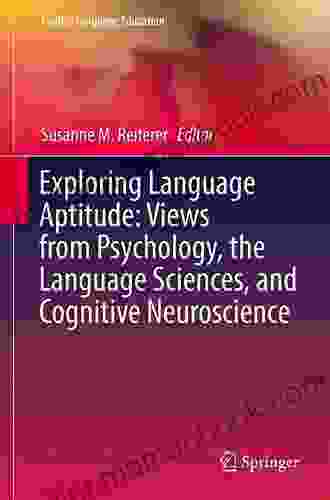Views From Psychology The Language Sciences And Cognitive Neuroscience English

Language is a complex and fascinating phenomenon that has been studied by scholars from a variety of disciplines, including psychology, the language sciences, and cognitive neuroscience. Each of these disciplines offers a unique perspective on language and cognition, and together they provide a comprehensive understanding of this essential human capacity.
4.5 out of 5
| Language | : | English |
| File size | : | 10007 KB |
| Text-to-Speech | : | Enabled |
| Screen Reader | : | Supported |
| Enhanced typesetting | : | Enabled |
| Word Wise | : | Enabled |
| Print length | : | 410 pages |
Psychology
Psychologists have long been interested in the study of language and cognition. In the early days of psychology, researchers such as Wilhelm Wundt and Edward Titchener focused on the basic building blocks of language, such as phonemes and words. However, in the 20th century, psychologists began to take a more holistic approach to the study of language, focusing on how it is used in real-world contexts. This approach, known as cognitive psychology, has led to a number of important insights into the nature of language and cognition.
One of the most important contributions of cognitive psychology to the study of language has been the development of models of language processing. These models describe the different stages involved in understanding and producing language, and they have helped to identify the cognitive processes that are essential for language use. For example, the Wernicke-Geschwind model of language processing proposes that language is processed in two stages: a sensory stage, in which the brain processes the sounds of speech, and a motor stage, in which the brain produces the sounds of speech. This model has been influential in the development of treatments for language disorders, such as aphasia.
Cognitive psychology has also made important contributions to the understanding of language development. Researchers have identified the different stages of language development, and they have developed theories to explain how children learn to understand and produce language. This research has helped to identify the factors that can contribute to language disorders, such as autism and specific language impairment.
The Language Sciences
The language sciences is a broad field that includes linguistics, speech-language pathology, and communication sciences and disorders. Linguists are interested in the study of language itself, including its structure, history, and use. Speech-language pathologists are interested in the assessment and treatment of language disorders, while communication sciences and disorders professionals are interested in the study of all aspects of human communication, including language, speech, and hearing.
The language sciences have made important contributions to the understanding of language and cognition. For example, linguists have developed theories of language structure that describe the different levels of language, including phonology, syntax, semantics, and pragmatics. These theories have helped to identify the universal features of language, as well as the ways in which languages differ from each other. Speech-language pathologists have developed assessment and treatment techniques that can help people with language disorders to improve their communication skills. Communication sciences and disorders professionals have developed research methods that can be used to study all aspects of human communication.
Cognitive Neuroscience
Cognitive neuroscience is a relatively new field that combines the methods of cognitive psychology and neuroscience to study the neural basis of cognition. Cognitive neuroscientists are interested in understanding how the brain processes information, including language. This research has led to a number of important insights into the relationship between language and cognition.
One of the most important contributions of cognitive neuroscience to the study of language has been the development of neuroimaging techniques, such as fMRI and PET. These techniques allow researchers to see which parts of the brain are active when people are performing language-related tasks. This research has helped to identify the brain regions that are essential for language processing, such as Broca's area and Wernicke's area. It has also helped to identify the neural networks that are involved in language learning and development.
Cognitive neuroscience has also made important contributions to the understanding of language disorders. Researchers have used neuroimaging techniques to identify the brain regions that are damaged in people with language disorders, such as aphasia and autism. This research has helped to develop new treatments for language disorders, and it has also helped to identify the factors that can contribute to these disorders.
The fields of psychology, the language sciences, and cognitive neuroscience offer complementary perspectives on language and cognition. Each of these disciplines has made important contributions to our understanding of this essential human capacity. By working together, researchers from these fields can continue to unravel the mysteries of language and cognition.
4.5 out of 5
| Language | : | English |
| File size | : | 10007 KB |
| Text-to-Speech | : | Enabled |
| Screen Reader | : | Supported |
| Enhanced typesetting | : | Enabled |
| Word Wise | : | Enabled |
| Print length | : | 410 pages |
Do you want to contribute by writing guest posts on this blog?
Please contact us and send us a resume of previous articles that you have written.
 Top Book
Top Book Novel
Novel Fiction
Fiction Nonfiction
Nonfiction Literature
Literature Paperback
Paperback Hardcover
Hardcover E-book
E-book Audiobook
Audiobook Bestseller
Bestseller Classic
Classic Mystery
Mystery Thriller
Thriller Romance
Romance Fantasy
Fantasy Science Fiction
Science Fiction Biography
Biography Memoir
Memoir Autobiography
Autobiography Poetry
Poetry Drama
Drama Historical Fiction
Historical Fiction Self-help
Self-help Young Adult
Young Adult Childrens Books
Childrens Books Graphic Novel
Graphic Novel Anthology
Anthology Series
Series Encyclopedia
Encyclopedia Reference
Reference Guidebook
Guidebook Textbook
Textbook Workbook
Workbook Journal
Journal Diary
Diary Manuscript
Manuscript Folio
Folio Pulp Fiction
Pulp Fiction Short Stories
Short Stories Fairy Tales
Fairy Tales Fables
Fables Mythology
Mythology Philosophy
Philosophy Religion
Religion Spirituality
Spirituality Essays
Essays Critique
Critique Commentary
Commentary Glossary
Glossary Bibliography
Bibliography Index
Index Table of Contents
Table of Contents Preface
Preface Introduction
Introduction Foreword
Foreword Afterword
Afterword Appendices
Appendices Annotations
Annotations Footnotes
Footnotes Epilogue
Epilogue Prologue
Prologue Joel Dokmegang
Joel Dokmegang Michael Cimicata
Michael Cimicata Louise Penny
Louise Penny Lizzie Lane
Lizzie Lane J M Ney Grimm
J M Ney Grimm Brian Wolfe
Brian Wolfe Webster Young
Webster Young Michel Houellebecq
Michel Houellebecq Nicholas Denmon
Nicholas Denmon Dan Brown
Dan Brown Robin Roughley
Robin Roughley Robert Mcnally
Robert Mcnally Nicole Zoltack
Nicole Zoltack Teodolinda Barolini
Teodolinda Barolini Vera Pavlova
Vera Pavlova Mike Freeman
Mike Freeman David Lee
David Lee Helios
Helios Felix Mitterer
Felix Mitterer Seanan Mcguire
Seanan Mcguire
Light bulbAdvertise smarter! Our strategic ad space ensures maximum exposure. Reserve your spot today!

 Isaac MitchellYou're Doing Just Fine: A Comprehensive Guide to Overcoming Self-Doubt and...
Isaac MitchellYou're Doing Just Fine: A Comprehensive Guide to Overcoming Self-Doubt and...
 Jeffery BellUnravel the Twisted Romantic Suspense of the Scarred Trilogy: A Captivating...
Jeffery BellUnravel the Twisted Romantic Suspense of the Scarred Trilogy: A Captivating...
 Floyd RichardsonFantastic Four: A Comprehensive Examination of the 1961-1998 and 1996 Series
Floyd RichardsonFantastic Four: A Comprehensive Examination of the 1961-1998 and 1996 Series Cruz SimmonsFollow ·16k
Cruz SimmonsFollow ·16k Paul ReedFollow ·5.6k
Paul ReedFollow ·5.6k Ronald SimmonsFollow ·8.5k
Ronald SimmonsFollow ·8.5k Herbert CoxFollow ·10.3k
Herbert CoxFollow ·10.3k Marc FosterFollow ·14.7k
Marc FosterFollow ·14.7k Trevor BellFollow ·9.7k
Trevor BellFollow ·9.7k Theo CoxFollow ·2.3k
Theo CoxFollow ·2.3k Noah BlairFollow ·16.1k
Noah BlairFollow ·16.1k

 Caleb Carter
Caleb CarterThe Complete Beagle Dog Beginners Guide: Beagle Facts,...
Beagles are...
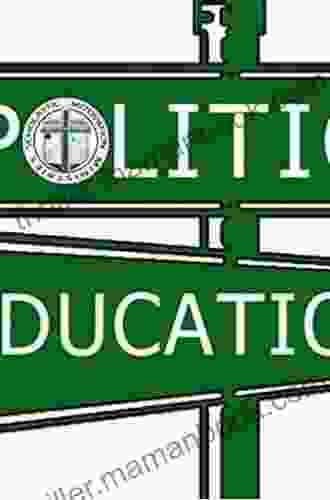
 Gage Hayes
Gage HayesThe Origins and Evolution of No Child Left Behind:...
The No Child Left Behind...

 George Martin
George MartinThe Love Pirates: A Swashbuckling Tale of Love,...
The Love Pirates is a thrilling...
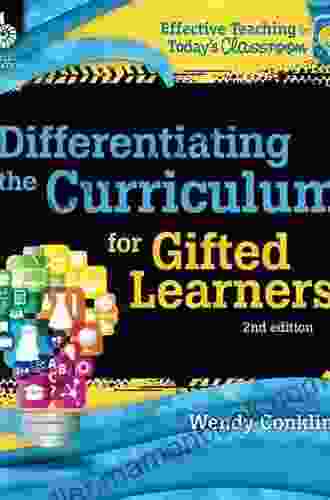
 Nathaniel Hawthorne
Nathaniel HawthorneDifferentiating the Curriculum for Gifted Learners:...
Gifted learners are...
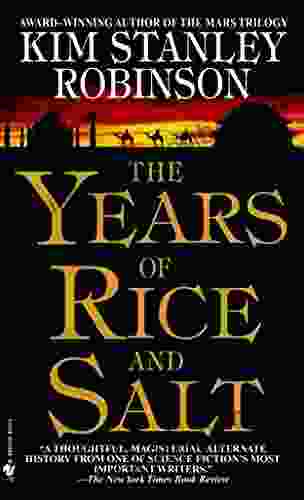
 Carlos Fuentes
Carlos FuentesThe Years of Rice and Salt: A Journey Through a Forgotten...
The Years of Rice and Salt is...
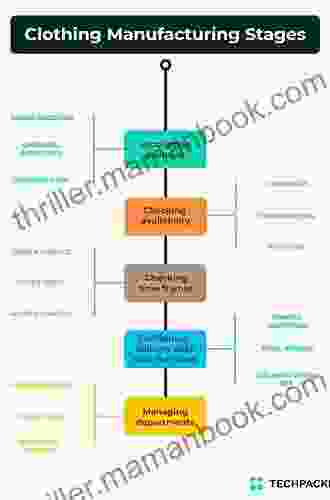
 Herbert Cox
Herbert CoxThe Intricate Design of Clothing Manufacturing Processes:...
The clothing industry is a vast and...
4.5 out of 5
| Language | : | English |
| File size | : | 10007 KB |
| Text-to-Speech | : | Enabled |
| Screen Reader | : | Supported |
| Enhanced typesetting | : | Enabled |
| Word Wise | : | Enabled |
| Print length | : | 410 pages |


